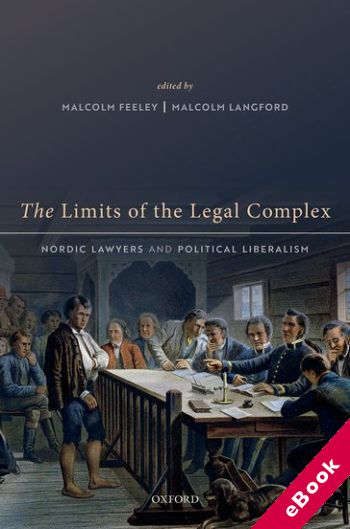
The device(s) you use to access the eBook content must be authorized with an Adobe ID before you download the product otherwise it will fail to register correctly.
For further information see https://www.wildy.com/ebook-formats
Once the order is confirmed an automated e-mail will be sent to you to allow you to download the eBook.
All eBooks are supplied firm sale and cannot be returned. If you believe there is a fault with your eBook then contact us on ebooks@wildy.com and we will help in resolving the issue. This does not affect your statutory rights.
Spanning two centuries and five Nordic countries, this book questions the view that political lawyers are required for the development of a liberal political regime. It combines cross-disciplinary theory and careful empirical case studies by country experts whose regional insights are brought to bear on wider global contexts.
The theory of the legal complex posits that lawyers will not simply mobilize collectively for material self-interest; instead they will organize and struggle for the limited goal of political liberalism. Constituted by a moderate state, core civil rights, and civil society freedoms, political liberalism is presented as a discrete but professionally valued good to which all lawyers can lend their support. Leading scholars claim that when one finds struggles against political repression, politics of the Legal Complex are frequently part of that struggle. One glaring omission in this research program is the Nordic region.
This insightful volume provides a comprehensive account of the history and politics of lawyers of the last 200 years in the Nordic countries: Norway, Sweden, Denmark, Finland, and Iceland. Topping most global indexes of core civil rights, these states have been found to contain few to no visible legal complexes. Where previous studies have characterized lawyers as stewards and guardians of the law that seek to preserve its semi-autonomous nature, these legal complexes have emerged in a manner that challenges the standard narrative. This book offers rational choice and structuralist explanations for why and when lawyers mobilise collectively for political liberalism. In each country analysis, authors place lawyers in nineteenth century state transformation and emerging constitutionalism, followed by expanding democracy and the welfare state, the challenge of fascism and world war, the tensions of the Cold War, and the latter-day rights revolutions. These analyses are complemented by a comprehensive comparative introduction, and a concluding reflection on how the theory of the legal complex might be recast, making The Limits of the Legal Complex an invaluable resource for scholars and practitioners alike.